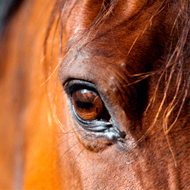
Changes to germinal product trade conditions come into force on October 1
Changes to the conditions for trade in germinal products will come into force on October 1, 2014 - in particular, the testing options for contagious equine mastitis (CEM) and equine viral arteritis (EVA).
Defra's imports and EU trade team has issued guidance about the main changes introduced by the Commission Implementing Regulation 846/2014/EU, which amends Annex D of Directive 92/65/EEC.
Key changes are:
Equine
1. Polymerase chain reaction (PCR) or real-time PCR may be used to test for CEM (swabs) and EVA (semen). PCR testing for CEM is available at AHVLA's Penrith centre. A PCR for EVA, however, is not currently available from AHVLA. It is expected the test will become available in a few weeks' time and an update will be provided when it is.
2. Under certain circumstances, when a PCR is used for CEM testing, samples only need to be collected and tested once, as opposed to collecting and testing samples twice seven days apart (for culture).
These circumstances are:
- For embryo collection, where the CEM test is required within 30 days before collection.
- When semen is collected under programme two - where routine CEM tests are required within 60 days prior to collection of semen for trade. At the start of breeding season, however, samples must still be collected and tested on two occasions, seven days apart and 14 days after the 30-day residency has begun.
3. Routine testing will no longer be required for semen collected under programme two. Currently, testing is required every 60 days for CEM, every 90 days for equine infectious anaemia and every 30 days for EVA unless the stallion is seropositive, in which case testing is required every six months. However, from October 1, a test must have been carried out within these time frames prior to collection of each batch of semen intended for trade.
4. If antimicrobial treatment has been carried out on a donor stallion, swabs for CEM (culture or PCR) must be collected at least seven days afterwards (in the case of systematic treatment) or 21 days afterwards (in the case of local treatment).
5. Certain samples are no longer required for CEM - pre-ejaculatory fluid (semen) and endometrial cervix (embryos).
Species under the Balai Directive
For embryos, the zona pellucida (or embryonic capsule for equines) must be examined at no less that 50x magnification (rather than 40x as currently) before it can be certified as intact and free from adherent material.
Clarification from the EU Commission
- Frozen semen that has been collected under programmes one and two cannot be exported immediately. Before it can be certified for trade, it must be stored for at least 30 days.
- Separate swabs must be submitted for culture or PCR tests for CEM; swabs cannot be pooled. Three separate swabs must be submitted for semen - from the penile sheath (prepuce), the urethra and the fossa glandis. Two separate swabs for embryos from the mucosal surfaces of the clitoral fossa and the clitoral sinuses (there are three clitoral sinuses - left lateral, median and right lateral but one swab can be used for these).
Certification (ITAHCs)
Certification that enables the trade in Balai germinal products from October 1 are yet to be adopted - further updates will be issued when these become available.
For further information, see http://www.defra.gov.uk/animal-trade/2014/cin-ge-14-66/, or contact your local AHVLA.



 The Federation of Independent Veterinary Practices (FIVP) has announced a third season of its podcast, Practice Matters.
The Federation of Independent Veterinary Practices (FIVP) has announced a third season of its podcast, Practice Matters.